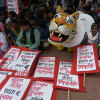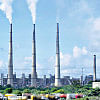What about our “loss”?

It's that time of year again when we talk about the rationality of power tariff hike. According to media reports, Bangladesh Petroleum Corporation (BPC) has forwarded a proposal to the Energy and Mineral Resources Division (EMRD) that there is need to hike the prices of petroleum products. And here it gets interesting because the proposed hike of 11 and 31 percent is ludicrous. As always, the rationale behind these hikes is that unless this is done, BPC will incur substantial losses. This has become somewhat of a joke in the energy sector since it's all about "avoiding losses" for state-owned and run corporations. Again, by what has been printed in media, if the proposal is accepted in its present state, we will be coughing up Tk 55 per litre for furnace oil and Tk 72 per litre for diesel and kerosene.
We are informed by media that BPC imported diesel at about USD 50 per barrel in April, 2016 and the price of the same barrel in January 2018 is USD 82.10. Price of furnace oil has nearly doubled (over the same period) to USD 412.41. The latest hike being demanded has everything to do with the increase in prices of petroleum in the international market since June 2017. While prices were at an all-time low till that time, BPC had made windfall profits for three years in a row (at the behest of consumers—both bulk and retail) and is now lamenting over "losses". It perhaps did not dawn upon policymakers that the good times of the last few years would not last forever and as the global recession is showing signs of being over, it is only natural that there will be an upturn in the international market for oil.
Why wait for the situation to get to a point when the corporation cannot bear the burden anymore before demanding such a huge hike? According to a report in The Financial Express on February 18 "The BPC has undertaken a programme to implement a number of projects, including a second-crude-oil refining unit of Eastern Refinery Ltd (ERL), country's first single-point-mooring (SPM) system, two oil-carrying pipelines along Dhaka-Chittagong and Kanchon Bridge-Kurmitola at a total cost of Tk 167.39 billion from its own coffers." So we have huge expenditure outlay by BPC to cover infrastructure development costs but apparently little planning on what would happen when international oil prices rebounded. This is a problem made by policymakers, but as always, and there is no reason to suspect that there will be any change in the policy this time round either and that is, simply pass on the buck to consumers.
Last year I had written that it has always been customary to pass on "losses" sustained by state-owned enterprises in the energy sector to retail and bulk consumers without making even an effort to achieve efficiency. That argument holds good today. When we talk about efficiency, it is not simply implementing cost-reducing processes at the plant level; it also means making changes at the management level. What has the government done to make the management more efficient? There are good managers and there are bad managers. Would it be impossible for the concerned ministry to introduce a scheme whereby plant managers (at state-owned enterprises) would be rewarded for better performance of their plants?
Why stop there? Would it be impossible to give incentives to private plants that produce power at less cost? Could we not have an incentive scheme for the private manufacturing sector for industries that consume less energy and power? Such incentives could come in the form of reduced taxes on machinery needed to retrofit factories to consume less energy. These are not impossible scenarios and can be done if the will exists at policy level. For too long we have been basking in the (mistaken) knowledge that we have ample gas reserves and that the next big gas find is just around the corner. That bubble burst a couple of years ago. And while the short-term fix of addressing power needs through rental power plants has literally, become our mid-term plan, we must face the realities on the ground. It is impossible to keep hiking prices every year without addressing the systemic problems that plague our energy sector.
Another price hike is almost inevitable. And it hardly helps if the Bangladesh Energy Regulatory Commission (BERC) slashes the hike from 31 percent to, say, 21 percent in the upcoming public hearing; the bottom line is that there will be no end to these "losses" because we have done next to nothing to address the inefficiencies in the system. There is no incentive for state-owned enterprises in the energy sector to reduce the "system loss" nor is there any incentive for efficient managers to initiate changes because of a lack of rewards system. Any price hike in power will put the government in a fix as it is; after all, election year and such massive increases in the price of fuels will undoubtedly be felt down the supply chain, as cost of producing electricity will go up and there is only so much subsidy that the state can give before passing the burden onto us.
Syed Mansur Hashim is Assistant Editor, The Daily Star.










Comments